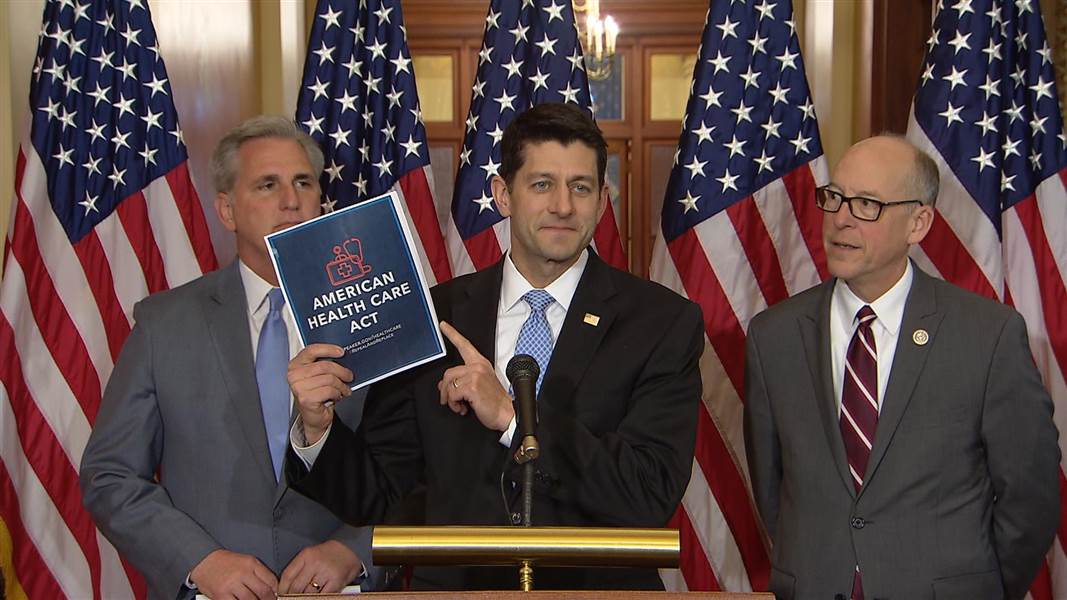As SuzyKnew! predicted, Trump moved fast to mess up women’s health. While the American Health Care Act (AHCA) – a.k.a. Trumpcare – is “Obamacare Lite” in that it keeps a lot of the contraceptive coverage ObamaCare provided for insurance plans people get at work (probably because it’s not so easy to get rid of), the bill calls for some deep, cruel and politically-motivated cuts in women’s health. Note: unlike some web sites, SuzyKnew! is all about contraceptive choice, and although we may feature some methods more than others, we believe every Sista’ must chose for herself which method and product is best for her.
So, will the AHCA before congress jack up Sistas’ reproductive health? For access to contraceptives, it depends. How do you cover the cost of your contraception? Through the healthcare insurance you get at work? At a Planned Parenthood clinic or through Medicaid?
If you get your contraception from an employer-based insurance plan and your employer has more than 50 employees, more than likely, you don’t have anything to worry about. No hurry on that IUD insertion you’ve been thinking about. But, if you work for a small employer you might lose your healthcare coverage. It is expected that the Congressional Budget Office will announce that it expects 15 million people to lose coverage under the AHCA because TrumpCare won’t require as many employers to cover their workers.
TrumpCare won’t continue the Medicaid expansion after 2020 – which many believe gave us the gains made in reproductive health, including the lowest number of abortions in decades and fewer teen pregnancies. Of the more than 19 million women on Medicaid, 70 percent of them are of reproductive age. Medicaid covers 72 million low-income Americans of which 19% are Black and 31% are Hispanic. According to Guttmacher Institute, a leading research and policy organization committed to advancing sexual and reproductive health and rights in the United States and globally, three-quarters of all public dollars for family planning come from Medicaid and half of all births in the U.S. are covered by Medicaid, including two-thirds of all unplanned births.
Cruelly, but not surprising, the bill would defund Planned Parenthood for a year. This means Planned Parenthood would not be able to be reimbursed by the federal government for women who pay using Medicaid. This would mean, the organization would lose around $530 million or 40 percent of its budget jeopardizing the group’s ability to keep many of its 650 clinics around the country open. The clinics that remain open will more than likely offer services at higher prices. So, not only will this version of the AHCA significantly reduce women of color’s access to contraceptives but also services for diabetes and cholesterol testing, vaccinations, breast exams, pap smears, STD testing, and of course abortions, which are not paid for using federal dollars. As women of color are more likely to get uterine and breast cancer this reduced access to preventive reproductive health services is especially threatening.
If you get your contraceptives from an individual plan instead of one from work, it may be difficult to find a low-cost plan that covers contraceptives or abortion. The current AHCA plan will allow insurance companies to offer bare-bones coverage covering only medical catastrophes but not contraceptives or pregnancy like Obamacare. Before, the Affordable Care Act (ACA) or Obamacare, only 12% of plans found on the individual market covered maternity care. So, having a baby will be a lot more expensive under Trump – perhaps cost prohibitive for many. And, avoiding pregnancy will also be more expensive, if you rely on Planned Parenthood or an individual plan.
Using health savings accounts (HSAs) and tax credits, Republicans will prevent tax credits from being used to purchase any insurance plan that offers abortion coverage. Effectively, this would mean women earning less than $75,000 a year will not have have insurance with abortion coverage since there is an economic disincentive to spend more on a plan with such coverage. Insurers who want to participate in Trumpcare exchange will have to drop abortion from their coverage, including in states in which abortion coverage in state exchange plans has previously been allowed.
Many predict there will be more unintended pregnancies and women may try to self-abort with reduced access to abortion. Would there be a rise in uterine and breast cancers?
Yes, the AHCA will jack up your reproductive health. And, if you rely on Planned Parenthood for your reproductive and other health services, go get your IUD or implant insertion while you can and while you’re there get a breast exam and pap smear.
And, while the AHCA is only a bill, call your congress representatives to voice your concern. Don’t let Trumpcare become law and do untold damage downtown.
SuzyKnew!






